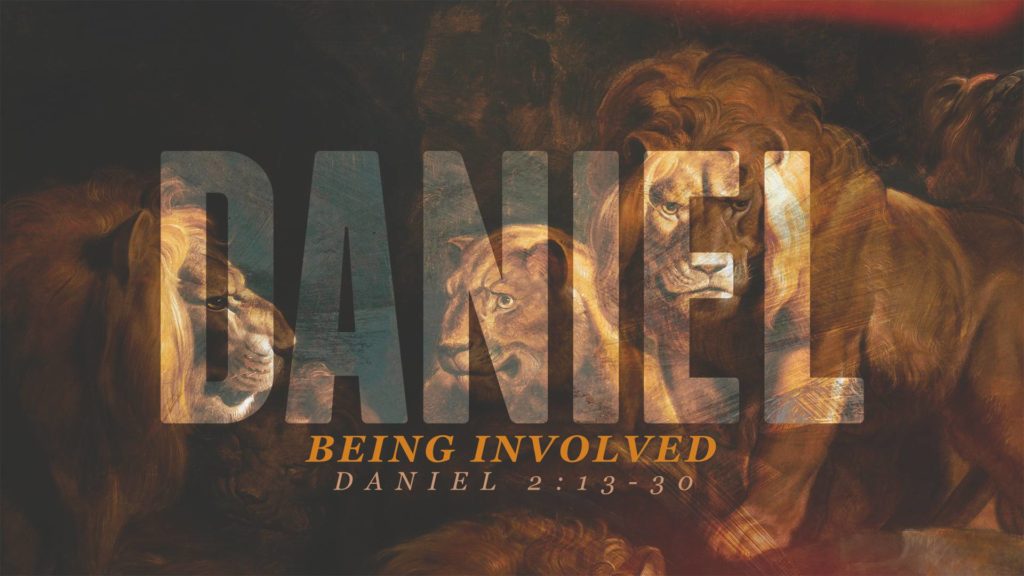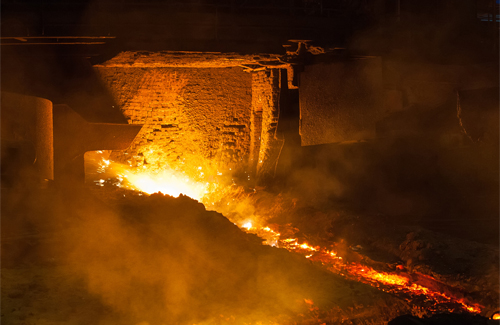20
May '20

Grace is Greater
20
May '20

God’s grace is greater than your sin. That’s what the Apostle Paul wrote in Romans 5:20, “Moreover the law entered, that the offense might abound. But where sin abounded, grace did much more abound.”
All those who have experienced this great news are eager to share it with as many people possible. This is true whether you’re an ordinary person or royalty. Nebuchadnezzar ruled an empire renowned for its military, cultural, and artistic superiority. What could possibly be greater than building and ruling such a kingdom?
Nebuchadnezzar discovered that answer. When he did, he enthusiastically shared the news with the entire empire. This evening at 7pm we will read and learn from Nebuchadnezzar’s testimony. We also learn, once again, from Daniel’s example. You see, the truth about God’s amazing grace will only be truly appreciated by the one who recognizes his utter sinfulness. In other words, the Good News is so good because the bad news is so bad. Daniel did not shrink back from communicating the TIMELESS TRUTH of God’s grace to his king. That required him to also be willing to describe why his king – like all of us – required grace.
Our text tonight will be Daniel 4. The Bible study will be live-streamed. While we have not officially relaunched the Wednesday night service, you are free to join us and welcomed.
Read more...
13
May '20

Nebuchadnezzar Testifies
13
May '20

A humble heart pleases God. The Lord has said this through His prophet Isaiah, “To this man will I look, even to him that is poor and of a contrite spirit, and trembleth at my word” (66:2b) We read in the Psalms:
- 34:18, “The LORD is nigh unto them that are of a broken heart; and saveth such as be of a contrite spirit.”
- 51:17, “The sacrifices of God are a broken spirit: a broken and contrite heart, O God, thou wilt not despise.”
Christ Jesus began the Sermon on the Mount with the Beatitudes, the first four having to do with humility.
There is no doubt. Humility pleases God. The humble person may enjoy fellowship with their Creator. Sadly, humanity has always viewed humility as our current culture views smoking, something that is hazardous to your health and should be restricted. We live in a world preoccupied with brains, bodies, and bank accounts. The by-product of all that is a perpetual and persistent self-love fest.
I Want it My Way!
“Love yourself” is a popular mantra. Not a new one, just one that has become mainstream. Our schoolchildren are encouraged to write essays on “Why I am important” or “Why I love myself.” Advertising campaigns encourage us to spend our extra money, or even money we don’t have, on ourselves because, “You’re worth it.” We drive around with bumper stickers that boast about our elementary student who has made the honor roll. The only humor in this is that it all transpires during an age of participation awards! Society has taken “Ol’ Blue Eyes” at his word, and everyone sings to himself, and anyone who will listen, “I did it my way!” Or if they haven’t done anything, “I want it my way!”
But in a list of seven things which Almighty God hates (Yes, such a list exists. Just follow the link.), pride is listed first. We also read from the wisdom of Proverbs 16:5a, “Every one that is proud in heart is an abomination to the Lord…” and “A high look, and a proud heart…is sin” (21:4). To drive home the point we have the example of King Uzziah, who the Chronicler says was “marvelously helped, till he was strong. But when he was strong, his heart was lifted up to his destruction,” (2 Chronicles 26:16).
God’s Way is Best
Daniel 4 is the text for this evening’s Bible study. Here we have King Nebuchadnezzar enjoying the golden years of his life and rule. The world was conquered, the borders were secure, and all the economic indicators were strong. He had palaces, power, and prosperity. Despite all that, he had a problem. He was troubled, once again, by an awful dream.
Daniel was the Lord’s instrument. He interpreted the King’s dream and identified Nebuchadnezzar’s principal problem as pride. Up to this point he had failed to acknowledge that it is ultimately God who rules. The king’s world was bound up in himself. Nebuchadnezzar’s problem was not low self-esteem. He esteemed himself too highly, and did not esteem God at all. That had to change. What was the remedy? Verse 25 provides it. Nebuchadnezzar needed to acknowledge “that the Most High rules in the kingdoms of men.” Nebuchadnezzar must look away from himself, and look to Almighty God. This is the proper therapy for all who suffer from a proud heart.
Nebuchadnezzar’s testimony is powerful. Not because he was a powerful man but because he finally acknowledged that heaven rules!
Read more...
29
Apr '20

Being Involved
29
Apr '20

The king couldn’t sleep. Dark dreams had filled his head of late. This man who led the most glorious empire in the world discovered that power, wealth, pleasure, or achievement were not enough to guarantee a good night’s rest. Since Nebuchadnezzar could not sleep, he had the wise men roused from their bed chambers. He demanded that they not only interpret his dream, but he first wanted the dream solvers to tell him what the dream was. In essence, Nebuchadnezzar didn’t just want his dream explained. He wanted himself to be explained. The king was terrifyingly troubled because he was unwilling to deal with the ultimate issues of life: “Who am I? Why am I here? Where am I going? What does it matter?”
In steps Daniel at this point of the drama. He was one of the wise men in the realm, along with Hananiah, Mishael, and Azariah. They were all to be executed. We know from 1:17-20 that these four men were highly favored by the king, but evidently that wasn’t enough to save them from his wrath. Nebuchadnezzar seemed to struggle with fits of rage, and this wouldn’t be the last time.
Daniel’s involvement highlights character qualities that we would do well to emulate. We also must bear in mind as we highlight the six characteristics evident in Daniel 2:13-30, that they were all exhibited while Daniel was literally under the gun (the sword, in his case). The king’s agitation had created adversity for Daniel and his cohorts. Albert Einstein said, “Adversity introduces a man to himself.” Kentucky’s own James Lane Allen wrote, “Circumstances do not determine a man, they reveal him.” Daniel’s character was certainly revealed during this time of adversity.
Livestream at 7pm
Tonight at 7pm we will livestream our mid-week Bible study of this life-or-death situation for Daniel, Hananiah, Mishael, and Azariah. We shouldn’t forget that this wasn’t their first exposure to bad times. It wouldn’t be their last. Let’s also be reminded that while it’s normal to think we’ve never had it “this bad” before, that just isn’t true. Life is not easy. Life is not safe. Thankfully, our ultimate reward is not to be found in this life. Still, while here we should be involved. Daniel provides a solid template to follow.
Read more...


